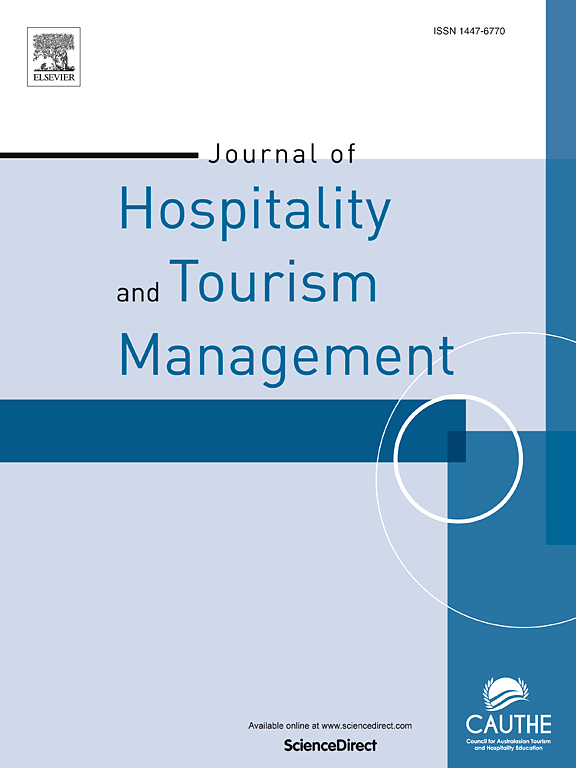Role models or competitors? Understanding influencer marketing in restaurants from the perspective of customers’ social comparison orientation
IF 7.6
1区 管理学
Q1 HOSPITALITY, LEISURE, SPORT & TOURISM
引用次数: 0
Abstract
Despite increasing attention to influencer marketing in the food industry, research on influencer marketing in the restaurant segment is limited. Drawing on social comparison theory, this study aims to investigate how customers’ social comparison orientation (SCO) affects the effectiveness of influencer marketing for restaurants via influencer–follower relationship dynamics. Specifically, this study explores how customers' ability-based SCO and opinion-based SCO lead to distinct motives that facilitate the influencer defense, which in turn fosters customers' visit intentions toward restaurants endorsed by social media influencers. The proposed framework is tested using a sample of 308 respondents who completed a survey questionnaire distributed on Douyin. Partial least squares structural equation modeling is used for statistical analysis. The results demonstrate that ability-based SCO has a positive effect on the self-improvement motive but has no influence on the social identification motive. Opinion-based SCO is positively related to the self-improvement motive and the social identification motive. While self-improvement and social identification motives are the drivers of restaurant visit intentions, only the social identification motive has a significantly positive effect on influencer defense. Additionally, influencer defense is the driver of restaurant visit intentions. These findings provide practical insights for restaurant managers.
榜样还是竞争对手?从顾客社会比较取向的角度理解餐馆的影响者营销
尽管食品行业对影响者营销的关注与日俱增,但对餐饮行业影响者营销的研究却十分有限。本研究以社会比较理论为基础,旨在探讨顾客的社会比较取向(SCO)如何通过影响者与追随者的关系动态影响餐饮业影响者营销的效果。具体而言,本研究探讨了顾客基于能力的社会比较取向和基于观点的社会比较取向如何导致不同的动机,从而促进影响者防御,进而促进顾客对社交媒体影响者认可的餐厅的访问意向。我们使用在豆瓣上发放的调查问卷,以 308 名受访者为样本,对所提出的框架进行了测试。统计分析采用了偏最小二乘结构方程模型。结果表明,基于能力的 SCO 对自我提升动机有积极影响,但对社会认同动机没有影响。基于观点的 SCO 与自我完善动机和社会认同动机呈正相关。虽然自我改善动机和社会认同动机是餐厅访问意愿的驱动因素,但只有社会认同动机对影响者防御有显著的正向影响。此外,影响者防御也是餐厅访问意愿的驱动因素。这些发现为餐厅管理者提供了实用的启示。
本文章由计算机程序翻译,如有差异,请以英文原文为准。
求助全文
约1分钟内获得全文
求助全文
来源期刊
CiteScore
13.30
自引率
8.40%
发文量
177
审稿时长
45 days
期刊介绍:
Journal Name: Journal of Hospitality and Tourism Management
Affiliation: Official journal of CAUTHE (Council for Australasian Tourism and Hospitality Education Inc.)
Scope:
Broad range of topics including:
Tourism and travel management
Leisure and recreation studies
Emerging field of event management
Content:
Contains both theoretical and applied research papers
Encourages submission of results of collaborative research between academia and industry.

 求助内容:
求助内容: 应助结果提醒方式:
应助结果提醒方式:


